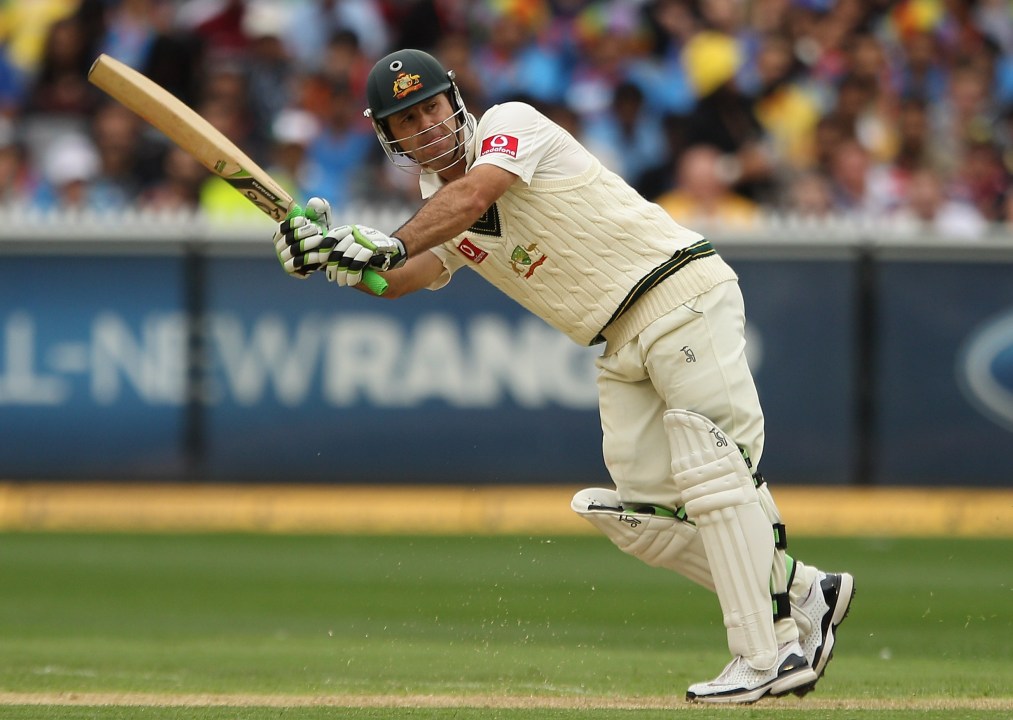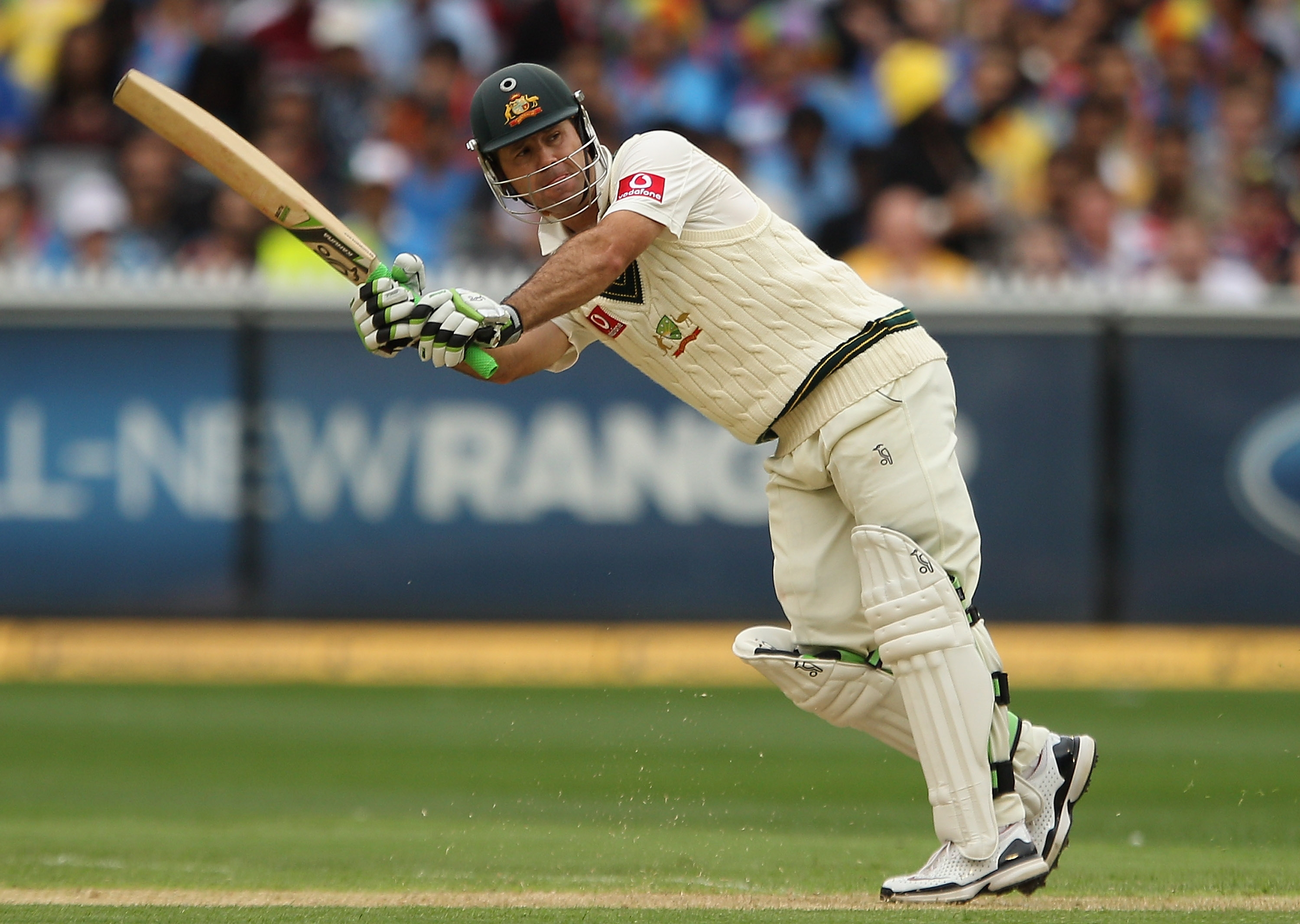With the Don at three and Keith Miller inked for the all-rounder’s role at six there are only two open spots in Australia’s all-time middle order. It is a measure of Ricky Ponting’s greatness that no-one doubts he’s a sensible, worthy contender for one of those places. You may prefer the claims of Clem Hill, Charlie McCartney, Stan McCabe, Neil Harvey or Greg Chappell, but Punter is undoubtedly part of the conversation and only a fool would scoff at including him in this Fantasy XI.
That’s how good he was. In England I fancy there’s sometimes a tendency to forget how fine a batsman Ponting was and instead place a little too much emphasis upon his captaincy. We sometimes forget how important luck is in cricket. If Glenn McGrath had not twisted his ankle; if Michael Kasprowicz had not been given out – understandably but, in fact, erroneously – at Edgbaston, the Australians might well have retained the Ashes during that monumental 2005 series. Fate or fortune was against them. No bad thing that, but the margins are precious thin.
In any case, Ponting’s match-saving century at Old Trafford showed the little battler at his best. It was, as the Old Batsman says in his lovely account of Punter’s life and times, a magnificent, stubborn, act of will that brooked no surrender. But then Ponting’s batting often bristled didn’t it?
Earmarked for greatness by the time he was 12, Punter grew up sporting a t-shirt whose slogan promised that inside this shirt is growing a future Australian test batsman. If you’re going to be cocky you’d best have some game too. Ponting did, even if it also took him longer to truly establish himself than either he or many others had predicted. Growing into fame – and responsibility – took time.
There were moments – entire years in fact – when it seemed almost impossible to dismiss him. Many players have produced wondrous seasons, rather fewer have enjoyed such sustained periods of supreme form so often.
Ponting’s response to the agonies of 2005 was magnificent. When England traveled south to defend the Ashes, the Australian captain batted with a pitiless intensity even Steve Waugh might have struggled to match. 196 at Brisbane was followed by 142 at Adelaide. Series over. He was a tough little bastard, right enough. The kind of Australian you’d once have wanted on your side in the trenches or the North African desert. Booing him was shameful.
But he had the shots too. I suspect you might have to go back to Gordon Greenidge to find a batsman whose pull-shot was as rifle-shot brilliant as Ponting’s. Playing in a great side – one of the greatest ever assembled – helped but Ponting was undoubtedly the most complete Australian batsman since Chappell. He’d have thrived in any era. If he had a weakness in India it might also be noted that he rarely had the opportunity to pad his statistics with cheap runs harvested from Zimbabwe or Bangladesh.
And now he’s gone, the last full member of that great Australian side. The mantle has been passed to the next generation. On present evidence, that generation will buckle. A top three of Warner, Cowan and Watson inspires no terror at all. The men who built and sustained what Gideon Haigh calls “a baggy green and golden age” have gone. Mike Hussey and Michael Clarke are the only embers of the present side still burning with a proper connection to those glory days. In that sense, Ponting’s retirement marks the conclusion of an era that began nearly thirty years ago when Alan Border first began the business of dragging Australia back to the summit.
So, Rahul Dravid in March, VVS Laxman in August and now, in late November, Ponting. This, my friends, is how an era ends. Only Sachin, perhaps the greatest of them all, remains. Soon too even the first and last of them will shuffle quietly from the stage, his part exhausted, his bat silenced.
It is not that there are not successors – for there are – but that they are not our successors. They belong to a different time. Test cricketers fall into three camps: your childhood heroes and villains, your contemporaries and then, as the years roll on, the youngsters whose turn it is to play in the sun.
David Gower and Ian Botham will always be the Englishmen for me. None of their successors, however worthy they may be, can inspire the same measure or devotion as your boyhood heroes. No English cricketer is likely to supplant Graham Gooch’s position as my own Villain-in-Chief. (A position earned not only on account of his hangdog Essexness but because of his role in bringing Gower’s career to a premature conclusion.) Your childhood stays with you forever.
Your contemporaries are a different matter. Tendulkar has been playing test cricket since I became eligible to vote. Ponting made his debut a week short of his 21st birthday and a handful of months after I’d turned 21. These pair, plus Dravid and Laxman, have been in the arena for my entire adult life. And now they have gone it leaves a hole that cannot be filled, or at least not filled in the exact same way, by their successors.
Cook and Clarke and the others are fine, fine players but they belong to another era that one may admire but to which one does not quite belong. Ponting, like Dravid and Laxman and Tendulkar, has been a large part of many lives. To say the sun is setting now is to risk seeming too melodramatic to be taken seriously and yet the sense persists of an era slipping away and that’s reason enough for some measure of sadness even as we give thanks for all the good times we all enjoyed.








Comments